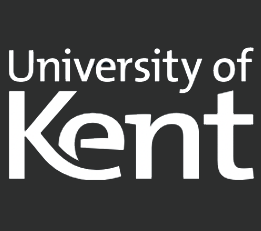Lessons from War Zones for Organisations and Companies -In the Aftermath of the US Elections-
High-stake conflict environments are intense and demanding, pushing individuals to their limits. The pressure in these situations requires pragmatic approaches, and the lessons learned are highly applicable to organisations These insights offer a new perspective that advances traditional management wisdom.
Yeshim Harris
11/18/20243 min read


Lessons from War Zones for Organisations and Companies
-In the Aftermath of the US Elections-
By Yeshim Harris (yeshimharris.com)
High-stake conflict environments are intense and demanding, pushing individuals—and organisations—to their limits. In the aftermath of the recent U.S. elections, many businesses are bracing for potential shifts and increased tensions in the market. The impact of policy changes, public sentiment, and economic uncertainty means that organisations must adopt a pragmatic, level-headed approach. When the stakes are high, the consequences of missteps can be severe and far-reaching, making conflict management skills essential for organisational resilience.
What do lessons from high-stake disputes offer?
Methods created in life-or-death scenarios are not only very effective but also remarkably pragmatic. These environments are often volatile and therefore demand quick thinking and strategy adaptation, and therefore have exceptional pragmatism and adaptability. Experts in these fields excel at turning resistance into productive dialogue. The ability to stay calm, make sound decisions and have a realistic perspective under extreme pressure is directly transferable to organisations.
What are these lessons?
1. Mapping conflicts well: As professionals in high-stakes disputes, we meticulously analyse conflicts using highly practical tools to identify root causes. In these situations, there's no room for oversight – all relevant elements must be mapped, therefore the methods we use are battle-tested, effective and practical.
2. Realistic expectations: We understand that most conflicts are unsolvable in their entirety. We focus on managing conflicts and making progress rather than seeking perfect resolutions. Conflict shrinks people's world and becomes part of the identity, which is what creates resistance to solutions.
3. Conflict is not the enemy, avoiding it, is: Tensions and disagreements are natural in all interactions. Often the fear and avoidance of these is what creates and escalates conflict. Educating our teams and equip them with tools and approaches is what keeps communication open.
4. Self-awareness and bias recognition: In high-stakes disputes we actively work to recognise and address our own biases and fears to prevent unconscious prejudices that could hinder the resolution process. Above everything, self-awareness is number one priority when it comes to managing our own mental wellbeing.
5. Intentional engagement: We practise active and focused connection with all parties involved, carefully considering various perspectives and needs. This approach fosters trust and opens channels for meaningful dialogue, even in the most challenging circumstances.
6. Crisis management resilience: Successful conflict resolution requires adaptive decision-making. It embodies the characteristics of bamboo - flexible yet resilient, with deep roots and the ability to grow through adversity. Fostering a culture that encourages learning from failures develops the capacity to emerge stronger from crises.
7. Post-conflict planning: One of the critical strategies in high-stakes disputes is preparing for the aftermath of conflict resolution. The tools for this element need to be highly realistic, hard-headed, and practical, as the consequences of inadequate post-conflict planning can reignite tensions.
Universal applicability:
The principles of human behaviour and decision-making that conflict resolution experts rely on, are consistent across different contexts, making them highly transferable to business settings and organisations. At the end of the day, we are all human beings with the same fundamental fears and hopes, regardless of the setting or stakes involved.
Key takeaways
The lessons learned from high-stakes conflict resolution provide a fresh perspective that advance traditional management wisdom emphasising:
- The importance of pragmatism and quick adaptation in volatile situations.
- A realistic view of conflict resolution, focusing on progress rather than perfection.
- A proactive stance towards potential tensions, addressing issues before they escalate.
- The significance of self-awareness and bias recognition in leadership.
By embracing this fresh paradigm, using the relevant tools, organisations can prevent conflict escalation and turn challenges into catalysts for innovation and growth.
If your organisation needs a fresh, pragmatic approach for conflict management, with employees or in your boardroom, please get in touch at contact@yeshimharris.com

